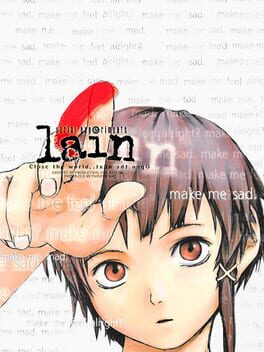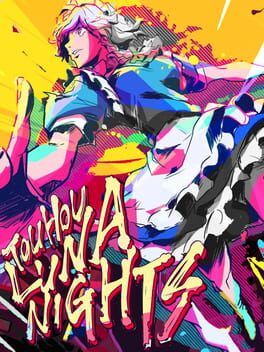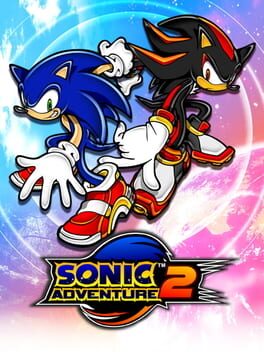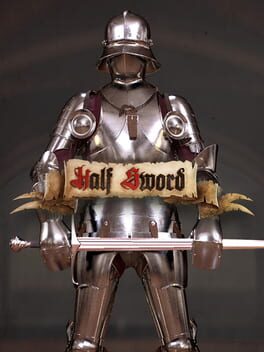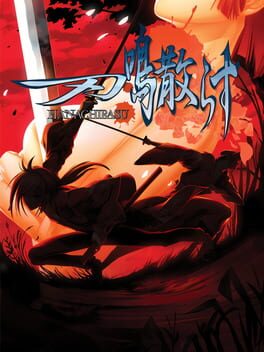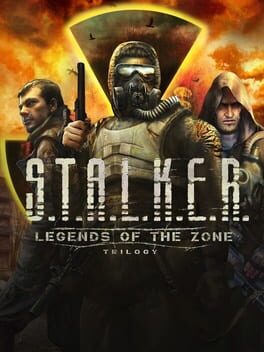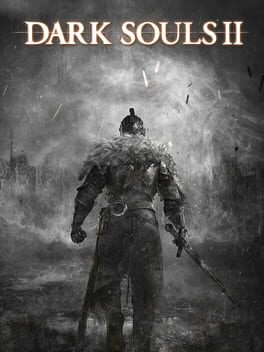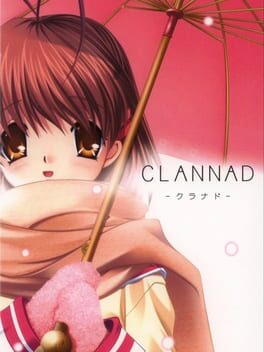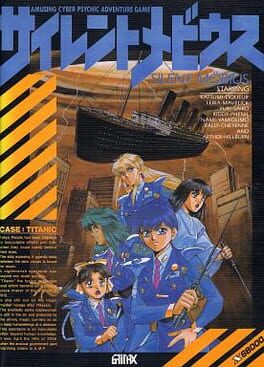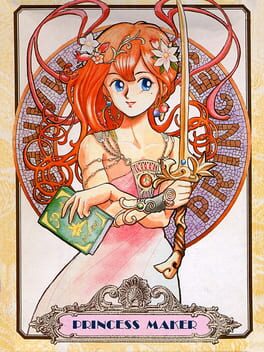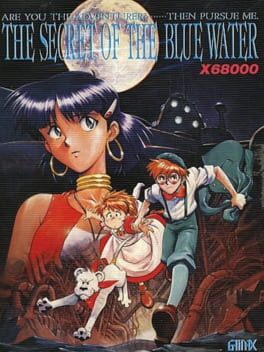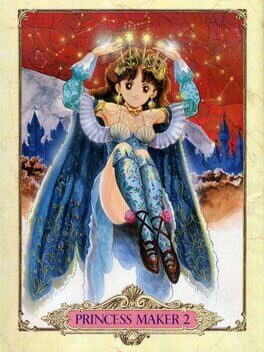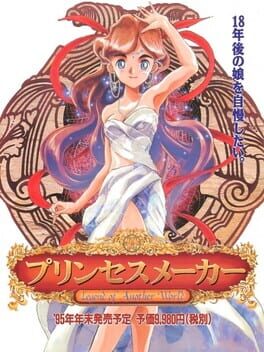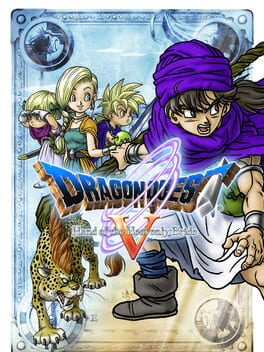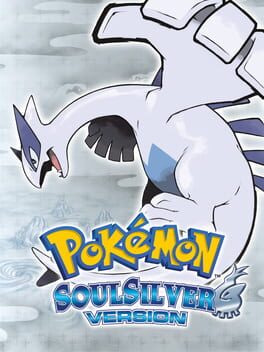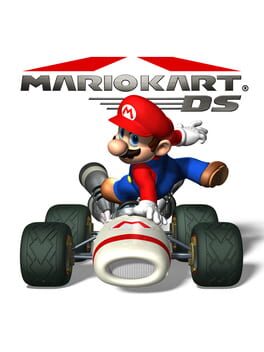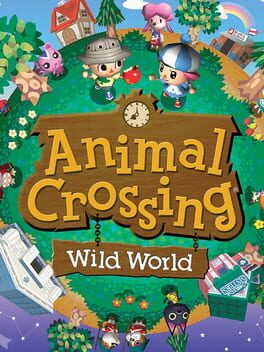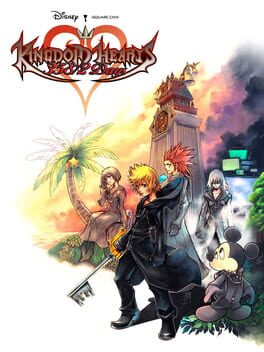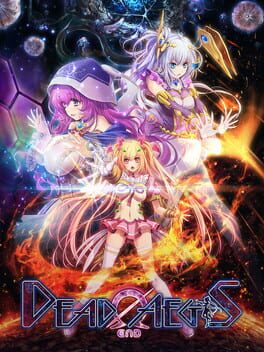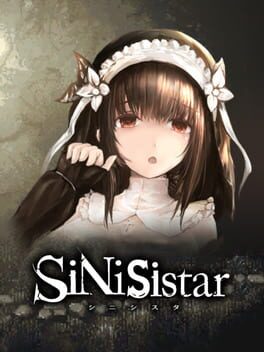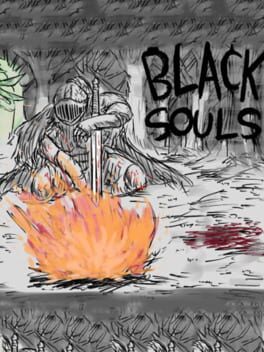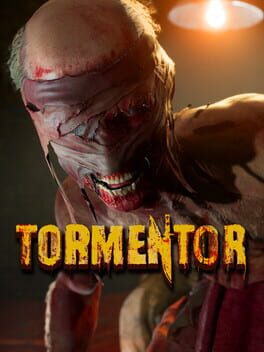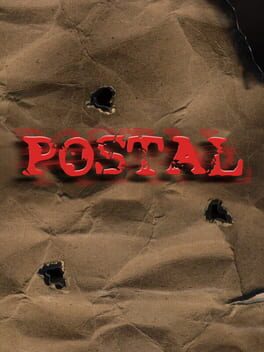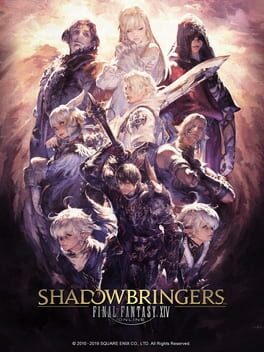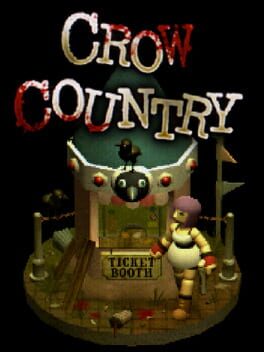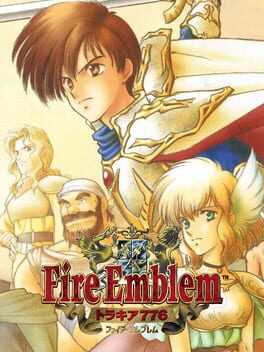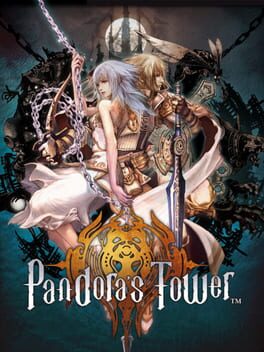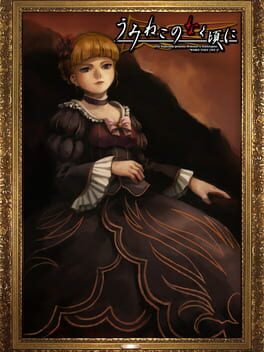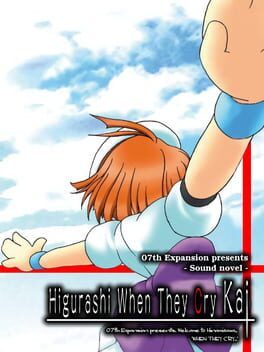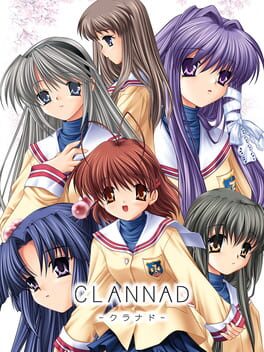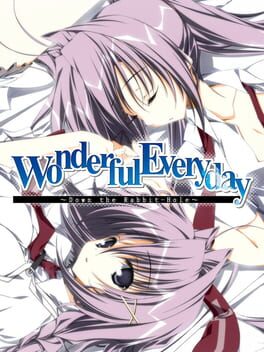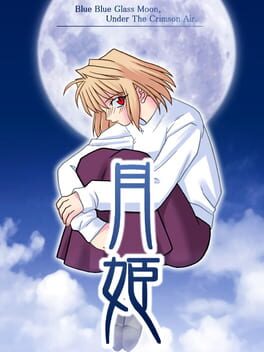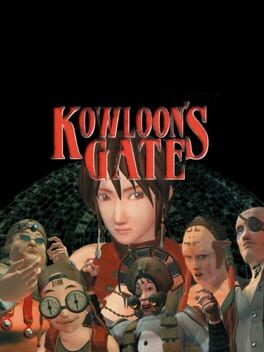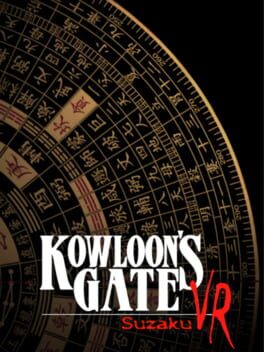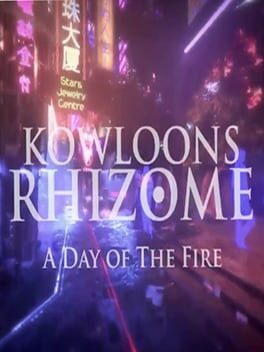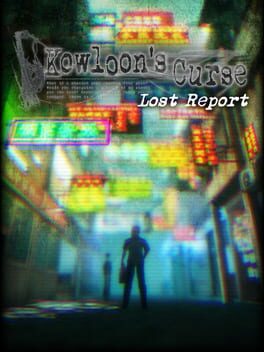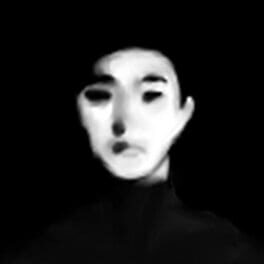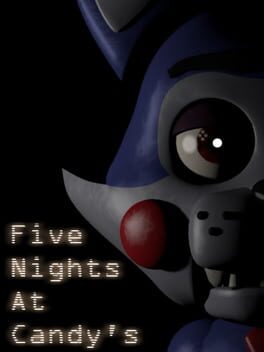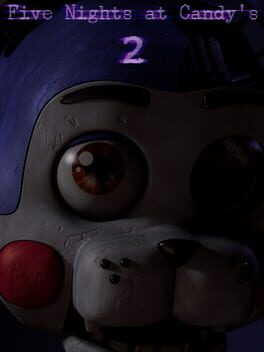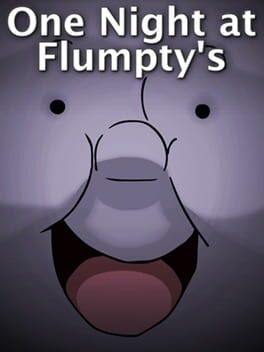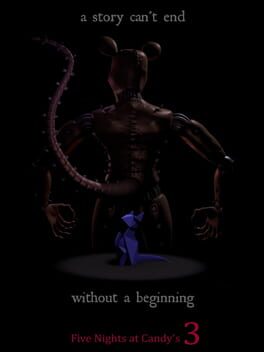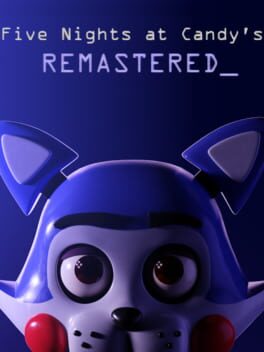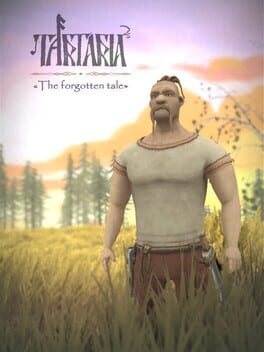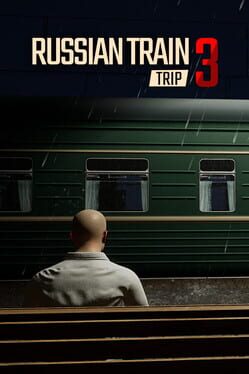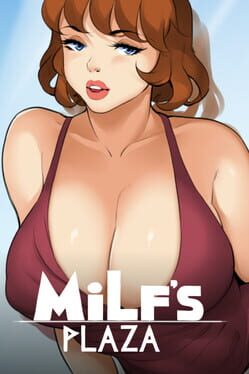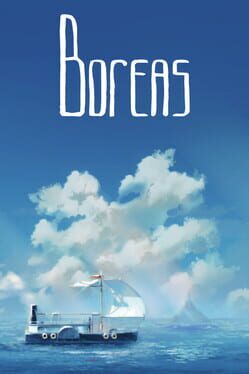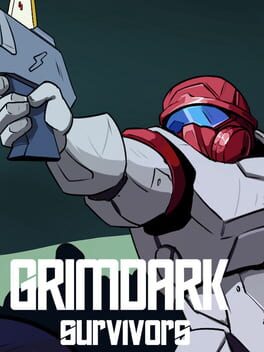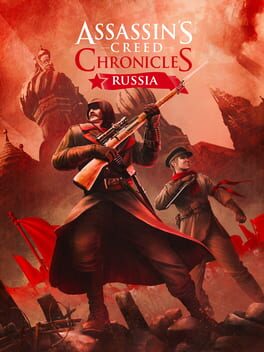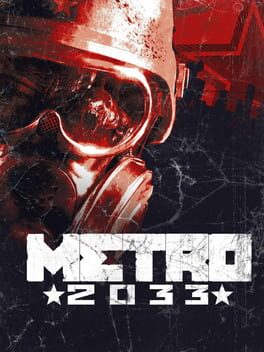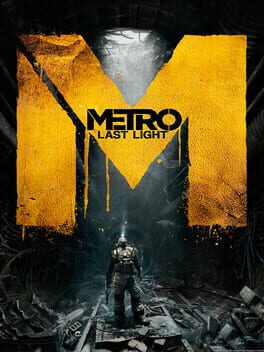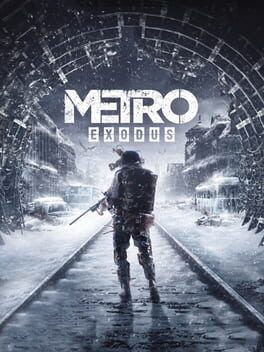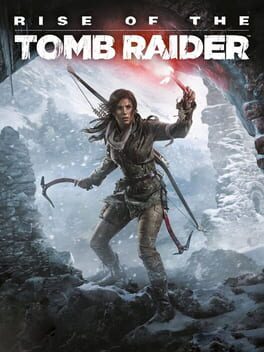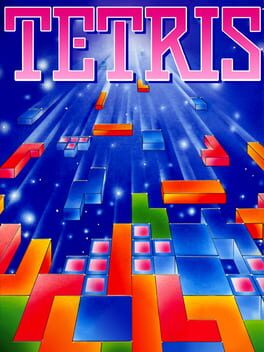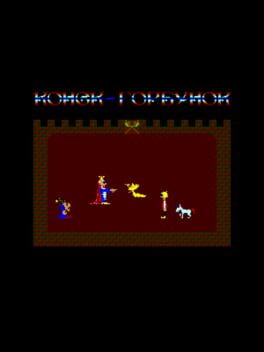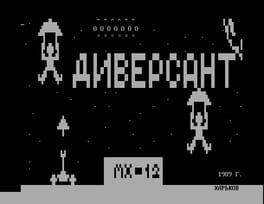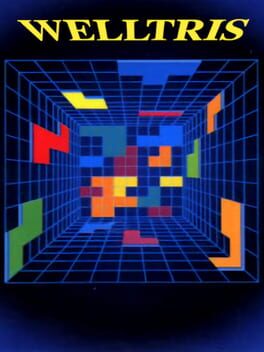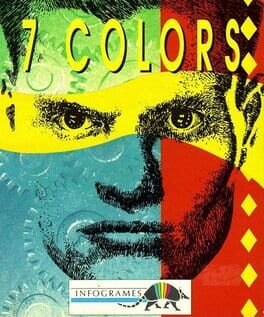Kirim
36 reviews liked by Kirim
Touhou Luna Nights
2019
finally! super metroid for queer people!
on the real, luna nights is a fucking jam. while the lack of exploration beyond some quick secrets and a less intricate and generally more streamlined design may leave metroidvania buffs underwhelmed, luna nights more than makes up for these things with kickass boss fights, inventive mechanics, an incredible soundtrack with stellar arrangements of old-school touhou classics, and a truly top-class presentation that puts many other "retro" sprite-based indie platformers to shame. my only real complaints are the lack of clarity on the minimap regarding when rooms have been fully explored, and a general excess of rooms which exist only for "throw as many enemies in a row at sakuya just to fill out this pre-boss area", especially given the breezy pace. i actually don't think this game is too short at all - the bosses more than make up for the minimal pacing. seems a little weird rumia's the only one of the EOSD crew that didn't make it in? but oh well. plenty of love for that game here as is. shit, and if you're a pc-98 era touhou fan like me... they've even got you covered here too in a REALLY cool way i didn't see coming. pick this up, sale or otherwise. probably the best fangame i've ever played and a DAMN fun metroidvania even without being attached to one of my absolute favorite video game series.
on the real, luna nights is a fucking jam. while the lack of exploration beyond some quick secrets and a less intricate and generally more streamlined design may leave metroidvania buffs underwhelmed, luna nights more than makes up for these things with kickass boss fights, inventive mechanics, an incredible soundtrack with stellar arrangements of old-school touhou classics, and a truly top-class presentation that puts many other "retro" sprite-based indie platformers to shame. my only real complaints are the lack of clarity on the minimap regarding when rooms have been fully explored, and a general excess of rooms which exist only for "throw as many enemies in a row at sakuya just to fill out this pre-boss area", especially given the breezy pace. i actually don't think this game is too short at all - the bosses more than make up for the minimal pacing. seems a little weird rumia's the only one of the EOSD crew that didn't make it in? but oh well. plenty of love for that game here as is. shit, and if you're a pc-98 era touhou fan like me... they've even got you covered here too in a REALLY cool way i didn't see coming. pick this up, sale or otherwise. probably the best fangame i've ever played and a DAMN fun metroidvania even without being attached to one of my absolute favorite video game series.
Sonic Adventure 2
2001
"oh but the speed stages are too easy and badly designed and control poorly"
"oh but the shooting stages are slower than in sonic adventure 1"
"the treasure hunting stages are lackluster and underdeveloped in comparison to the other two kinds of missions at best, and overly convoluted and artificially difficult at worst"
you know, in my quest to 100% this game for the first time in my 22-year sonic adventure 2 career, i was worried i'd ruined the magic of the game for myself. mastering this game is grueling, man. it's one of the most tedious, difficult, and demanding collect-a-thons ever made, and after a certain point the cracks in the foundation of the basic game design begins to show as sonic adventure 2 begins to burst under the weight of its own ambition. there are only so many times you can handle playing the same set of missions over the same set of levels clearly not designed around them before you start to feel a little wearied, you feel me?
but i think my saving grace was the fact that i opted to gather all of the mission emblems before i actually completed the main story. after getting every A-rank from city escape all the way to final chase, i strapped right back in to the last story and let it enfold me. it's kind of funny how a lot of the things i cherished heavily at one point due to nostalgia vision and their impact on me lose their luster when i revisit them - sonic adventure 1 itself isn't immune to this, nor are other contemporary classics like half-life 2 or the original bioshock that were equally impactful on me - but nope, sonic adventure 2 still makes me feel like i'm standing on the fucking ceiling every time i strap in and let the main campaign take me. i mean, sure, the game is strongest as a 5-hour tour de force where it can showcase the strengths of its perfected gameplay loops without having to stretch them thin over a bevy of tasks not suited to them, and a few of the levels actively work against what the game's mission statement is... but what does any of that matter in the long run when sonic adventure 2 is simply the coolest game ever made?
by june 2001, the writing wasn't even on the wall anymore - the wall had actively been blown the fuck down by a monolithic black juggernaut sent by sony to wipe the floor with any and all competitors. the dreamcast had already been discontinued in march after a less-than-three-year lifespan, and with sega's transition into exclusively third-party software development the future of the company and its individual identity was cast into utmost obfuscation. it would be all too easy to just bow your head and duck out quietly here, but sonic team didn't seem content to just sit there and take it. if they were gonna sink, they must have planned on going down with the ship, because sonic adventure 2 is a masterclass in confidence - narratively and mechanically this is the best game that they ever made, and it knows it.
i think i could make an easy case for sonic adventure 2's complexity and depth if i compared it to devil may cry 3 (a game which has a lot of story and stylistic parallels to sonic adventure 2 as well... hmmmm): it's easy to waffle your way through each level and just keep going after you stumble, keeping a skill ceiling just low enough that you don't drown in the insane amount of shit going on... but part of the reason why sonic adventure 2 has such a reputation for its insane 100% status is because playing sonic adventure 2 well takes a lot of skill, practice, and willingness to learn. between the points system actively rewarding stylish gameplay and optimizing the living hell out of every second of your run, the fact that even one mess-up can potentially mean a restart, be it due to failing to maximize your point accumilation or (even worse) dying and starting with 0 points from whatever checkpoint you'd hit before that point. granted, many of the missions actively work against this design philosophy (especially since the same set of 5 missions is copy-and-pasted onto probably 95% of the stages, regardless of genre or level design), but when it hits? you get what you put into it. i've been eking away at sonic frontiers for the past sixth months or so, and it's perpetually perplexing to me that they apparently still don't know how to make sonic control well when they got it right twenty-three years ago. i'm starting to think we'll never get platforming levels like metal harbor or final chase ever again, or even the utterly deranged examples set by cosmic wall and mad space...
all right. sit the fuck down with your jututsu kaisens and your chainsaw mans and your my hero academias. bleach? one piece? dragon ball z? hell, fucking full metal alchemist (the indisputable GOAT in my opinion)? you all take notes too. this is the real shit, motherfuckers. REAL SHOUNEN. all killer, no filler. a series of picture-perfect Moments flawlessly interwoven together with just enough internal rhyme and reason to convince you to Go With It and not think about it too hard, all while having enough genuine substance and things to say for its children-and-teens audience to chew on. there's a reason that you hear people recite basically every cutscene in this game word for word during GDQ runs: everything from the iconic jungle clash between sonic and shadow to the mundane little moments like amy, knuckles and tails chilling on the side of the road just ooze style and personality, even when the story at hand is so boneheaded and numbskulled that you can't really get much out of it besides the raw adrenaline pumping through your veins. i even think the weird mo-cap on the anthro actors gives everything a lot of personality and charm, if only because this is the only time that sonic and co have felt like real people and genuine action heroes to me: it's little things like sonic assuming a cool guy fighting pose when he's about to square up with eggman, or the sheer cuntiness in rouge dangling above the eclipse cannon when introducing herself to eggman and shadow. sonic has always sort of had this reputation as being a silly scrimblo bimblo cartoon series, and it is that, but for one brilliant moment of clarity it commits to the bit and makes sonic actually as cool as he purports to be... and he's got enough swag that it actively rubs off on everyone and anything around him.
of course, this is maybe sonic the hedgehog's most controversial foray into genuine pathos... but i think everybody hams up the perceived "edginess" at the heart of the game without considering whether or not it's all in service of what the game ultimately has to say. sega knew that this would likely be their swan song, and the introspection and reflection littered throughout the script and reflection reflect that perfectly: sega was going out with a whimper after exploding onto the game scene with a bang, and the sort of questions the story poses reflects that perfectly. what happens when you're not who you thought you were, or when the people you define yourself by aren't who they thought you to be? the consistent anti-authoritarian throughline (sonic adventure 2 is an explicitly anti-police and anti-military game, and i'm not exaggerating even a little) reflects a willingness to distrust that which is portrayed as the unambiguous and untouchable good within our society. eggman's idolization of his grandfather is broken when he beholds dr. gerald's descent into wickedness, perhaps coming to understand his own lust for power and control as something less than the true tragic evil that now lives on through the blood in his veins. rouge's loyalty eventually yields not to her government benefactors or to her own selfish desires, but to her endearment to knuckles - an act which seems to even surprise herself by the end. hell, tails actually manages to make good on his "being independent from sonic" character arc from the previous game, considering that he breaks free from the mold of being a simple sidekick and is probably the single largest driving factor in the hero storyline from the moment sonic gets arrested for a second time.
last but most CERTAINLY not least, shadow the hedgehog's obfuscated memories and trauma-laden motivations all act to obscure and suppress the genuine kind heart and noble intentions he was born with and made for, perhaps being the embodiment of the game's study of and statements against the very concept of dualism. you would think that sonic's comparative lack of depth would make him stick out like a sore thumb here, but if anything i think this is the one and only example of that one-note characterization working to his favor: sonic simply is who he is, and his acceptance of his simple nature allows him to be who he is effortlessly without any kind of cognitive dissonance or baggage keeping him burdened to the past or anchored to laments about his present. he holds himself to no particular moral standard or self-image save for doing what he simply feels is appropriate at any given moment, his need for self-indulgence and going with his heart mercifully counter-balanced by the inherent purity of his character. shadow yields the title of "ultimate life form" to sonic not out of a recognition of his physical power or infalliability as a person, but because sonic's ideology is simply the way to be: unapologetically, violently, proudly yourself, unfettered to the artificial molds arbitrated your society, your past, or even your own everyday insecurities.
when i say sonic adventure 2 is one of the all-time top game narratives, i don't mean that it reaches the ideological potence of something like disco elysium or the inscrutable complexity of chrono cross, my personal favorite game narrative... i just mean that for the kind of thing it sets out to accomplish there's simply nothing better than it. crucially, to understand this the same logic applied to the main cast must be applied to sonic adventure 2 itself. yes, sonic the hedgehog is a silly series for silly children about silly cartoon animals... but if you look past that exterior and let go of all the pre-conceived notions you might have forged about what sonic apparently is, something special awaits you: the reality that sonic adventure 2, top to bottom, is one of the greatest games ever made.
"oh but the shooting stages are slower than in sonic adventure 1"
"the treasure hunting stages are lackluster and underdeveloped in comparison to the other two kinds of missions at best, and overly convoluted and artificially difficult at worst"
you know, in my quest to 100% this game for the first time in my 22-year sonic adventure 2 career, i was worried i'd ruined the magic of the game for myself. mastering this game is grueling, man. it's one of the most tedious, difficult, and demanding collect-a-thons ever made, and after a certain point the cracks in the foundation of the basic game design begins to show as sonic adventure 2 begins to burst under the weight of its own ambition. there are only so many times you can handle playing the same set of missions over the same set of levels clearly not designed around them before you start to feel a little wearied, you feel me?
but i think my saving grace was the fact that i opted to gather all of the mission emblems before i actually completed the main story. after getting every A-rank from city escape all the way to final chase, i strapped right back in to the last story and let it enfold me. it's kind of funny how a lot of the things i cherished heavily at one point due to nostalgia vision and their impact on me lose their luster when i revisit them - sonic adventure 1 itself isn't immune to this, nor are other contemporary classics like half-life 2 or the original bioshock that were equally impactful on me - but nope, sonic adventure 2 still makes me feel like i'm standing on the fucking ceiling every time i strap in and let the main campaign take me. i mean, sure, the game is strongest as a 5-hour tour de force where it can showcase the strengths of its perfected gameplay loops without having to stretch them thin over a bevy of tasks not suited to them, and a few of the levels actively work against what the game's mission statement is... but what does any of that matter in the long run when sonic adventure 2 is simply the coolest game ever made?
by june 2001, the writing wasn't even on the wall anymore - the wall had actively been blown the fuck down by a monolithic black juggernaut sent by sony to wipe the floor with any and all competitors. the dreamcast had already been discontinued in march after a less-than-three-year lifespan, and with sega's transition into exclusively third-party software development the future of the company and its individual identity was cast into utmost obfuscation. it would be all too easy to just bow your head and duck out quietly here, but sonic team didn't seem content to just sit there and take it. if they were gonna sink, they must have planned on going down with the ship, because sonic adventure 2 is a masterclass in confidence - narratively and mechanically this is the best game that they ever made, and it knows it.
i think i could make an easy case for sonic adventure 2's complexity and depth if i compared it to devil may cry 3 (a game which has a lot of story and stylistic parallels to sonic adventure 2 as well... hmmmm): it's easy to waffle your way through each level and just keep going after you stumble, keeping a skill ceiling just low enough that you don't drown in the insane amount of shit going on... but part of the reason why sonic adventure 2 has such a reputation for its insane 100% status is because playing sonic adventure 2 well takes a lot of skill, practice, and willingness to learn. between the points system actively rewarding stylish gameplay and optimizing the living hell out of every second of your run, the fact that even one mess-up can potentially mean a restart, be it due to failing to maximize your point accumilation or (even worse) dying and starting with 0 points from whatever checkpoint you'd hit before that point. granted, many of the missions actively work against this design philosophy (especially since the same set of 5 missions is copy-and-pasted onto probably 95% of the stages, regardless of genre or level design), but when it hits? you get what you put into it. i've been eking away at sonic frontiers for the past sixth months or so, and it's perpetually perplexing to me that they apparently still don't know how to make sonic control well when they got it right twenty-three years ago. i'm starting to think we'll never get platforming levels like metal harbor or final chase ever again, or even the utterly deranged examples set by cosmic wall and mad space...
all right. sit the fuck down with your jututsu kaisens and your chainsaw mans and your my hero academias. bleach? one piece? dragon ball z? hell, fucking full metal alchemist (the indisputable GOAT in my opinion)? you all take notes too. this is the real shit, motherfuckers. REAL SHOUNEN. all killer, no filler. a series of picture-perfect Moments flawlessly interwoven together with just enough internal rhyme and reason to convince you to Go With It and not think about it too hard, all while having enough genuine substance and things to say for its children-and-teens audience to chew on. there's a reason that you hear people recite basically every cutscene in this game word for word during GDQ runs: everything from the iconic jungle clash between sonic and shadow to the mundane little moments like amy, knuckles and tails chilling on the side of the road just ooze style and personality, even when the story at hand is so boneheaded and numbskulled that you can't really get much out of it besides the raw adrenaline pumping through your veins. i even think the weird mo-cap on the anthro actors gives everything a lot of personality and charm, if only because this is the only time that sonic and co have felt like real people and genuine action heroes to me: it's little things like sonic assuming a cool guy fighting pose when he's about to square up with eggman, or the sheer cuntiness in rouge dangling above the eclipse cannon when introducing herself to eggman and shadow. sonic has always sort of had this reputation as being a silly scrimblo bimblo cartoon series, and it is that, but for one brilliant moment of clarity it commits to the bit and makes sonic actually as cool as he purports to be... and he's got enough swag that it actively rubs off on everyone and anything around him.
of course, this is maybe sonic the hedgehog's most controversial foray into genuine pathos... but i think everybody hams up the perceived "edginess" at the heart of the game without considering whether or not it's all in service of what the game ultimately has to say. sega knew that this would likely be their swan song, and the introspection and reflection littered throughout the script and reflection reflect that perfectly: sega was going out with a whimper after exploding onto the game scene with a bang, and the sort of questions the story poses reflects that perfectly. what happens when you're not who you thought you were, or when the people you define yourself by aren't who they thought you to be? the consistent anti-authoritarian throughline (sonic adventure 2 is an explicitly anti-police and anti-military game, and i'm not exaggerating even a little) reflects a willingness to distrust that which is portrayed as the unambiguous and untouchable good within our society. eggman's idolization of his grandfather is broken when he beholds dr. gerald's descent into wickedness, perhaps coming to understand his own lust for power and control as something less than the true tragic evil that now lives on through the blood in his veins. rouge's loyalty eventually yields not to her government benefactors or to her own selfish desires, but to her endearment to knuckles - an act which seems to even surprise herself by the end. hell, tails actually manages to make good on his "being independent from sonic" character arc from the previous game, considering that he breaks free from the mold of being a simple sidekick and is probably the single largest driving factor in the hero storyline from the moment sonic gets arrested for a second time.
last but most CERTAINLY not least, shadow the hedgehog's obfuscated memories and trauma-laden motivations all act to obscure and suppress the genuine kind heart and noble intentions he was born with and made for, perhaps being the embodiment of the game's study of and statements against the very concept of dualism. you would think that sonic's comparative lack of depth would make him stick out like a sore thumb here, but if anything i think this is the one and only example of that one-note characterization working to his favor: sonic simply is who he is, and his acceptance of his simple nature allows him to be who he is effortlessly without any kind of cognitive dissonance or baggage keeping him burdened to the past or anchored to laments about his present. he holds himself to no particular moral standard or self-image save for doing what he simply feels is appropriate at any given moment, his need for self-indulgence and going with his heart mercifully counter-balanced by the inherent purity of his character. shadow yields the title of "ultimate life form" to sonic not out of a recognition of his physical power or infalliability as a person, but because sonic's ideology is simply the way to be: unapologetically, violently, proudly yourself, unfettered to the artificial molds arbitrated your society, your past, or even your own everyday insecurities.
when i say sonic adventure 2 is one of the all-time top game narratives, i don't mean that it reaches the ideological potence of something like disco elysium or the inscrutable complexity of chrono cross, my personal favorite game narrative... i just mean that for the kind of thing it sets out to accomplish there's simply nothing better than it. crucially, to understand this the same logic applied to the main cast must be applied to sonic adventure 2 itself. yes, sonic the hedgehog is a silly series for silly children about silly cartoon animals... but if you look past that exterior and let go of all the pre-conceived notions you might have forged about what sonic apparently is, something special awaits you: the reality that sonic adventure 2, top to bottom, is one of the greatest games ever made.
Half Sword
TBD
Hanachirasu
2005
I think it's pretty easy to take for granted how much official controller support can add to a game. I'll give you an example: Rollercoaster Tycoon 3 on the Steam Deck is an unmitigated nightmare that, at best, is barely playable unless you have a mouse and keyboard plugged in. But the version for the Nintendo Switch works surprisingly well. Further case and point: anyone who has ever tried rebinding the buttons on a controller so they could play any of the three S.T.A.L.K.E.R. games developed and released between 2007-2009 probably came to the same realization that the developers of System Shock 2's canceled Dreamcast port did: there just aren't enough buttons on any controller for this shit, man. Unless you want to sacrifice your ability to lean around corners, turn on your flashlight, change the firing mode of your weapon, or have quick access to healing items, trying to play the PC versions of S.T.A.L.K.E.R. with a controller is inadvisable until further notice.
Like Rollercoaster Tycoon 3's Switch port, what drew me to the Legends of the Zone Trilogy bundle currently on sale for the Xbox and (surprisingly) PlayStation isn't that I had never touched these games before, but I was genuinely curious to see how a franchise that has never had official controller support before would handle the task of running on console hardware. And surprisingly, it works. It works about as well as you would expect it to, anyway. It is still a little finicky in some regards: sensitivity between aiming regularly and aiming down sights differs to a distracting degree, the weapon wheel doesn't pause or slow the game while you're using it, and navigating the inventory without a cursor slows things down, which isn't aided by the fact that using the inventory, too, does not slow or pause the game for you. Some of that clunkiness aside, though, these control fine and are perfectly adequate ways to experience the vanilla versions of these games if you've either never played them before or simply want a reason to play them again. They've added achievements to all three games, as well, which is always a nice touch. Multiplayer modes aren't present, but it should be common knowledge by now that multiplayer doesn't tend to carry over when an older game gets re-released unless it was a notable part of the package (and here, it was not).
This is sort of reminiscent of that time they ported Half-Life 2, FEAR, Far Cry, and Doom 3 to seventh-gen systems to accommodate for the fact that neither the PS2 nor original Xbox could manage stable/struggled to manage stable ports of either, except they've done it two console generations later. I don't really mind that though; I find this sort of re-release nostalgic. On the subject of this being released on last-gen hardware rather than current-gen systems, perhaps they didn't have the resources for that? That distinction does make this feel a bit lazier than it should to prying eyes, but on a PlayStation 5, it emulates just fine, looks great in 4K, and feels fine enough with a DualSense. I am a bit bummed that they didn't consider porting this to the Switch, but I can see where technical barriers and monetary incentives would have prevented such a port from happening. Oh well, maybe next time.
There are a couple of interesting differences I've noticed so far:
- The Energy Drinks you'll find in-game now have the branding/product placement that they apparently did in the original European releases.
- They've done their due diligence, and the Chernobyl in Shadow of Chernobyl is now spelled in Ukrainian fashion, with an O instead of an E. They've also gone ahead and done this for S.T.A.L.K.E.R. 2, so it's not too surprising, but what is is that they've gone ahead and edited the original menu images to accommodate for this change.
- As has been common with these re-releases since Whoopi Goldberg introduced the Looney Tunes (probably), there's a disclaimer in here about these games being historical artifacts (no pun intended). While you could point to something like the use of the R slur in these games for that disclaimer, the most likely explanation for what they're referring to is that these games have never had a particularly positive outlook on the Ukranian military. Preeeeetty bad timing for that, I'd say.
ETA: Easily the roughest bit of transition from PC to Consoles is that I don't think any of these ports allow you to quicksave. Given that S.T.A.L.K.E.R. has always been firmly in the camp of "quicksave every five minutes in case you die instantly", this means that your manual saves will fill up quickly. There's also the fact that these being straightforward ports means that there are no quickslots for any game that isn't Call of Pripyat. Prepare to be sorting through that inventory a lot just to use one energy drink! That being said, I stand by my assessment thus far: these are accessible ports that mostly work out of the box. If that's what you're looking for, it's forty bucks well spent.
ETA2: Lowering my score for this by a star. Everything I said is true, but the faithfulness of these ports also extends to their notable technical shortcomings, including crashes, bugs that have never officially been patched, and inconsistent spawning/despawning. These games are still playable and fine, evidenced by the fact that I just spent 22 hours in Shadow of Chernobyl with very few issues. But if you're coming in expecting these ports to have been polished for consoles beyond their controls and presentation, they're somewhat disappointing, although the likely explanation is that there might not have been much to work with.
Like Rollercoaster Tycoon 3's Switch port, what drew me to the Legends of the Zone Trilogy bundle currently on sale for the Xbox and (surprisingly) PlayStation isn't that I had never touched these games before, but I was genuinely curious to see how a franchise that has never had official controller support before would handle the task of running on console hardware. And surprisingly, it works. It works about as well as you would expect it to, anyway. It is still a little finicky in some regards: sensitivity between aiming regularly and aiming down sights differs to a distracting degree, the weapon wheel doesn't pause or slow the game while you're using it, and navigating the inventory without a cursor slows things down, which isn't aided by the fact that using the inventory, too, does not slow or pause the game for you. Some of that clunkiness aside, though, these control fine and are perfectly adequate ways to experience the vanilla versions of these games if you've either never played them before or simply want a reason to play them again. They've added achievements to all three games, as well, which is always a nice touch. Multiplayer modes aren't present, but it should be common knowledge by now that multiplayer doesn't tend to carry over when an older game gets re-released unless it was a notable part of the package (and here, it was not).
This is sort of reminiscent of that time they ported Half-Life 2, FEAR, Far Cry, and Doom 3 to seventh-gen systems to accommodate for the fact that neither the PS2 nor original Xbox could manage stable/struggled to manage stable ports of either, except they've done it two console generations later. I don't really mind that though; I find this sort of re-release nostalgic. On the subject of this being released on last-gen hardware rather than current-gen systems, perhaps they didn't have the resources for that? That distinction does make this feel a bit lazier than it should to prying eyes, but on a PlayStation 5, it emulates just fine, looks great in 4K, and feels fine enough with a DualSense. I am a bit bummed that they didn't consider porting this to the Switch, but I can see where technical barriers and monetary incentives would have prevented such a port from happening. Oh well, maybe next time.
There are a couple of interesting differences I've noticed so far:
- The Energy Drinks you'll find in-game now have the branding/product placement that they apparently did in the original European releases.
- They've done their due diligence, and the Chernobyl in Shadow of Chernobyl is now spelled in Ukrainian fashion, with an O instead of an E. They've also gone ahead and done this for S.T.A.L.K.E.R. 2, so it's not too surprising, but what is is that they've gone ahead and edited the original menu images to accommodate for this change.
- As has been common with these re-releases since Whoopi Goldberg introduced the Looney Tunes (probably), there's a disclaimer in here about these games being historical artifacts (no pun intended). While you could point to something like the use of the R slur in these games for that disclaimer, the most likely explanation for what they're referring to is that these games have never had a particularly positive outlook on the Ukranian military. Preeeeetty bad timing for that, I'd say.
ETA: Easily the roughest bit of transition from PC to Consoles is that I don't think any of these ports allow you to quicksave. Given that S.T.A.L.K.E.R. has always been firmly in the camp of "quicksave every five minutes in case you die instantly", this means that your manual saves will fill up quickly. There's also the fact that these being straightforward ports means that there are no quickslots for any game that isn't Call of Pripyat. Prepare to be sorting through that inventory a lot just to use one energy drink! That being said, I stand by my assessment thus far: these are accessible ports that mostly work out of the box. If that's what you're looking for, it's forty bucks well spent.
ETA2: Lowering my score for this by a star. Everything I said is true, but the faithfulness of these ports also extends to their notable technical shortcomings, including crashes, bugs that have never officially been patched, and inconsistent spawning/despawning. These games are still playable and fine, evidenced by the fact that I just spent 22 hours in Shadow of Chernobyl with very few issues. But if you're coming in expecting these ports to have been polished for consoles beyond their controls and presentation, they're somewhat disappointing, although the likely explanation is that there might not have been much to work with.
Dark Souls II
2014
nothing embodies this experience better than the 1-2 punch of the loopy arthouse perfume commercial intro followed almost directly by the mcdonalds ass "595839122 deaths served worldwide" advert in majula
on one hand we got a game with the foresight of a haruspex that envisions the ever-escalating arms race the series would find itself in and tries to preempt it with radical mechanical changes, and on the other we got a game that thinks Rat With a Mohawk is a really sick idea for a boss
this thing is the living end; the result of a wild disregard for anything fans consider sacred and a critical eye that found dark souls' core pillars wanting. given the chance to do a remix/remaster they chose to ignore all feedback, double down on all the bullshit, and name it SCHOLAR OF THE FIRST SIN like it's a terrence malick movie. the haters never had a prayer against this kind of power
oscillates between achingly beautiful and sandy petersen's work on doom II. presents characters as haunting as vendrick and lucatiel then goes and reskins dark souls' most emotionally resonant encounter as ripper roo. both modern fromsoft's most melancholic, human game, and the only one where you're forced to play as an absolute mutant
I'm at the point where I'm glad the lighting got downgraded before it came out. it should be fucked, it needs to feel sickly and eroded and wrong. iron keep has to be something you can't understand, and the transition from shaded woods to drangleic castle has to be as disorienting as possible. every time you question the earthen peak elevator I only grow stronger and more insufferable
this is the response to a call no one made. it's gotchas behind gotchas behind gotchas, noble failures, bandai namco PTDE marketing quotes, and fromsoft's most indulgently experimental design since demon's souls. it's the bondage gimp door, the gender swap coffin, npc invaders modeled after the most dickhead player behaviour possible, and the cumulative psychic damage of the frigid outskirts
it's fighting the rotten four times to skip half the game, becoming drangleic's next top model, and having NAMELESS CHAD kill you while you idle in iron keep. it's backstep iframes, powerstancing demon hammers, unbelievably good pvp, and yui tanimura's masterful turn as director of the dlc trilogy
talk all the shit you want:
a lie will remain a lie
on one hand we got a game with the foresight of a haruspex that envisions the ever-escalating arms race the series would find itself in and tries to preempt it with radical mechanical changes, and on the other we got a game that thinks Rat With a Mohawk is a really sick idea for a boss
this thing is the living end; the result of a wild disregard for anything fans consider sacred and a critical eye that found dark souls' core pillars wanting. given the chance to do a remix/remaster they chose to ignore all feedback, double down on all the bullshit, and name it SCHOLAR OF THE FIRST SIN like it's a terrence malick movie. the haters never had a prayer against this kind of power
oscillates between achingly beautiful and sandy petersen's work on doom II. presents characters as haunting as vendrick and lucatiel then goes and reskins dark souls' most emotionally resonant encounter as ripper roo. both modern fromsoft's most melancholic, human game, and the only one where you're forced to play as an absolute mutant
I'm at the point where I'm glad the lighting got downgraded before it came out. it should be fucked, it needs to feel sickly and eroded and wrong. iron keep has to be something you can't understand, and the transition from shaded woods to drangleic castle has to be as disorienting as possible. every time you question the earthen peak elevator I only grow stronger and more insufferable
this is the response to a call no one made. it's gotchas behind gotchas behind gotchas, noble failures, bandai namco PTDE marketing quotes, and fromsoft's most indulgently experimental design since demon's souls. it's the bondage gimp door, the gender swap coffin, npc invaders modeled after the most dickhead player behaviour possible, and the cumulative psychic damage of the frigid outskirts
it's fighting the rotten four times to skip half the game, becoming drangleic's next top model, and having NAMELESS CHAD kill you while you idle in iron keep. it's backstep iframes, powerstancing demon hammers, unbelievably good pvp, and yui tanimura's masterful turn as director of the dlc trilogy
talk all the shit you want:
a lie will remain a lie
Signalis
2022
You writhe beneath my skin
Born of ailing flesh and love
My thoughts, consumed by your sorrow.
Waking nightmares plague me, endless
A slow rotting miracle plucked from time,
You are all that I love, everything I fear
And all the entanglement festering between
For want of fair chances,
I stared into your abyss
As I've done for many before
And in return, you tore out my heart,
Impaled my eyes with your scarlet terror
Invaded the privacy of solitude,
And plunged your iron claws into my very soul.
You interrupt my nights.
My days, occupied by you
You are inescapable, yet...
For all your malignance,
Burrowed under flesh
and boiling blood,
I refuse
to let
go
–
Signalis bores its hooks into my skull, carving grooves into my brain where my psychoses pool. There’s something to be said for its reliance on the narrative language of anime and survival horror, but whether it’s derivative or iterative is a moot point. These beats that ring familiar are sores that Signalis splits open with a sadist’s pleasure. I could sit here and rattle off references, the obvious calls that permeate the body of the work, but where does that get you? Where does that get any of us, other than a cognizant “if you know you know” stranglehold? The language of Signalis isn’t concerned with simply being “Space Resident Evil”, or “Utena by way of Evangelion”. Much like the doomed Penrose, the referential nature of Signalis is, in itself, a repetitious time loop. It is not a work of references, it is its references.
I bolt awake, and Signalis presses on the nerve center that kick started my love of horror. 2008, in front of a bombed-out Gamecube, Jill Valentine tinkers though a puzzle box called the Spenser mansion. 2022, I bumblefuck through the escape room that is Sierpinski S-23.
Another restless night, another stab into my brain. 2012, my first pangs of personalized gender misanthropy at the hands of Asuka Langley Sohryu and Rei Ayanami, the brilliant shine of sapphic love reflected by Utena and Anthy. A decade later, the hate has faded and its place remains remorse for the past, regret for the now as the signature flashes of light and text flicker, as LSTR-512 and Ariane waltz in their final moments.
Again, interrupted sleep prevails. October, last year, the clattering of keys clicked out a cacophonous rhythm as I parse out a write up for Illbleed, a game that set ablaze the dying candle that was my love for gaming, for horror as a whole. Now, after a global rotation, I return to Signalis in the same spot, a love for writing, for fear, for gaming, for love itself, rekindled after a seasonal stagnation.
To try to put definitive words to Signalis seems contradictory to the way the game is delivered, indirect and symbolic in a way anathemic to thematic deduction. In it, I saw the spark of life relight my passion, and I enacted swift death to the tyrant, critical analysis. I could brandish lofty terms, of this having flawless gameplay, immersive writing, a memorable soundtrack, or any other terms I would gladly throw around about games that I will forget in a week. It’s not perfect. I don’t want it to be perfect: It’s for me. I don’t need it to be anything more than what it means to me, and what it means is that I think I love games again.
I awaken once more from broken sleep.
It’s 2014. I’m sitting with someone who, at the time, was my closest friend. We’re huddled around a laptop deep into the night, burning through works that would come to reflect what matters to me in games.
It’s tonight. I’m on call with someone I love. I’m huddled over a keyboard, burning through a write-up of a work that redefines what matters to me in games.
Play Signalis. You probably won’t get what I got out of it. That’s a good thing; it means there’s going to be something else out there that gives you the same feelings that this gave me. For now, I can push you to try a game I view as my personal perfection.
Born of ailing flesh and love
My thoughts, consumed by your sorrow.
Waking nightmares plague me, endless
A slow rotting miracle plucked from time,
You are all that I love, everything I fear
And all the entanglement festering between
For want of fair chances,
I stared into your abyss
As I've done for many before
And in return, you tore out my heart,
Impaled my eyes with your scarlet terror
Invaded the privacy of solitude,
And plunged your iron claws into my very soul.
You interrupt my nights.
My days, occupied by you
You are inescapable, yet...
For all your malignance,
Burrowed under flesh
and boiling blood,
I refuse
to let
go
–
Signalis bores its hooks into my skull, carving grooves into my brain where my psychoses pool. There’s something to be said for its reliance on the narrative language of anime and survival horror, but whether it’s derivative or iterative is a moot point. These beats that ring familiar are sores that Signalis splits open with a sadist’s pleasure. I could sit here and rattle off references, the obvious calls that permeate the body of the work, but where does that get you? Where does that get any of us, other than a cognizant “if you know you know” stranglehold? The language of Signalis isn’t concerned with simply being “Space Resident Evil”, or “Utena by way of Evangelion”. Much like the doomed Penrose, the referential nature of Signalis is, in itself, a repetitious time loop. It is not a work of references, it is its references.
I bolt awake, and Signalis presses on the nerve center that kick started my love of horror. 2008, in front of a bombed-out Gamecube, Jill Valentine tinkers though a puzzle box called the Spenser mansion. 2022, I bumblefuck through the escape room that is Sierpinski S-23.
Another restless night, another stab into my brain. 2012, my first pangs of personalized gender misanthropy at the hands of Asuka Langley Sohryu and Rei Ayanami, the brilliant shine of sapphic love reflected by Utena and Anthy. A decade later, the hate has faded and its place remains remorse for the past, regret for the now as the signature flashes of light and text flicker, as LSTR-512 and Ariane waltz in their final moments.
Again, interrupted sleep prevails. October, last year, the clattering of keys clicked out a cacophonous rhythm as I parse out a write up for Illbleed, a game that set ablaze the dying candle that was my love for gaming, for horror as a whole. Now, after a global rotation, I return to Signalis in the same spot, a love for writing, for fear, for gaming, for love itself, rekindled after a seasonal stagnation.
To try to put definitive words to Signalis seems contradictory to the way the game is delivered, indirect and symbolic in a way anathemic to thematic deduction. In it, I saw the spark of life relight my passion, and I enacted swift death to the tyrant, critical analysis. I could brandish lofty terms, of this having flawless gameplay, immersive writing, a memorable soundtrack, or any other terms I would gladly throw around about games that I will forget in a week. It’s not perfect. I don’t want it to be perfect: It’s for me. I don’t need it to be anything more than what it means to me, and what it means is that I think I love games again.
I awaken once more from broken sleep.
It’s 2014. I’m sitting with someone who, at the time, was my closest friend. We’re huddled around a laptop deep into the night, burning through works that would come to reflect what matters to me in games.
It’s tonight. I’m on call with someone I love. I’m huddled over a keyboard, burning through a write-up of a work that redefines what matters to me in games.
Play Signalis. You probably won’t get what I got out of it. That’s a good thing; it means there’s going to be something else out there that gives you the same feelings that this gave me. For now, I can push you to try a game I view as my personal perfection.
Hanachirasu
2005
"I crawl like a worm over bleached white bones,
blood my sustenance, and hate my reward.
Yet still, the sword, it rules me."
As I've mentioned before, I absolutely love artists' works that show tremendous passion and research done into the topic of focus. For example, Ridge Racer Type 4 and its clear love of the race, the cars, the experience of driving. One of my favorite manga, BECK, spoke to me as someone with a background in playing and recording music. Hanachirasu is such a work, and given the praise for the combat scenes in Ittetsu Narahara's work I'd heard so regularly, it came as no surprise that the swordplay and divulging of evident love of the blade and the historic roots of its arts was one of its strongest facets.
I found much of Narahara's discussion of the matter genuinely interesting, taking time to allow myself to truly immerse in the art of the sword - I actually searched up some YouTube videos depicting some techniques and traditions mentioned. In turn I feel like this passion speaks to the author's love of his homeland, of the traditions of the Japanese people that were so clearly left to die out by the terrors its people suffered at the hands of the West, predominantly during and post-World War II. Not to get too political, but I've seen the critique of Narahara's work as being somehow right-wing propaganda. As a staunch leftist, I question if this read comes from a place entirely based on Western values, politics and traditions - the patriotism and reverence of Japanese culture on display doesn't speak to dogmatic conservationism, but reclamation of a culture and history on the threshold of extinction at the hands of the West, predominantly America, and its treatment of the Japanese.
Ultimately, though, all of this serves as a backdrop and contextualization for a story about revenge and obsession; the lengths insecure and emotionally damaged people may go to in order to make it "right" by themselves, whittling the existence of themselves and others down to purely the goal at hand. Anything in the way of that or left over afterwards, like dust, like petals on the wind. One might read Akane as a character entirely fueled on the prospect of simply not being good enough, forgoing growth and acceptance and seeking the carnal and instinctive route to block out the pain until it simply stops or becomes too much. It's a story that doesn't seek to blow minds or twist your perceptions of its reality - some minor twists aside it remains entirely grounded in its concept and execution - but rather, like tate-do theatrics, shine a line on two intertwined souls not simply bound by the bound, but the dedication to become twin blades themselves.
—— A story leading to only one possible conclusion.
The curtains close on as quiet and contemplative a scene as the game has. Simply poetic.
blood my sustenance, and hate my reward.
Yet still, the sword, it rules me."
As I've mentioned before, I absolutely love artists' works that show tremendous passion and research done into the topic of focus. For example, Ridge Racer Type 4 and its clear love of the race, the cars, the experience of driving. One of my favorite manga, BECK, spoke to me as someone with a background in playing and recording music. Hanachirasu is such a work, and given the praise for the combat scenes in Ittetsu Narahara's work I'd heard so regularly, it came as no surprise that the swordplay and divulging of evident love of the blade and the historic roots of its arts was one of its strongest facets.
I found much of Narahara's discussion of the matter genuinely interesting, taking time to allow myself to truly immerse in the art of the sword - I actually searched up some YouTube videos depicting some techniques and traditions mentioned. In turn I feel like this passion speaks to the author's love of his homeland, of the traditions of the Japanese people that were so clearly left to die out by the terrors its people suffered at the hands of the West, predominantly during and post-World War II. Not to get too political, but I've seen the critique of Narahara's work as being somehow right-wing propaganda. As a staunch leftist, I question if this read comes from a place entirely based on Western values, politics and traditions - the patriotism and reverence of Japanese culture on display doesn't speak to dogmatic conservationism, but reclamation of a culture and history on the threshold of extinction at the hands of the West, predominantly America, and its treatment of the Japanese.
Ultimately, though, all of this serves as a backdrop and contextualization for a story about revenge and obsession; the lengths insecure and emotionally damaged people may go to in order to make it "right" by themselves, whittling the existence of themselves and others down to purely the goal at hand. Anything in the way of that or left over afterwards, like dust, like petals on the wind. One might read Akane as a character entirely fueled on the prospect of simply not being good enough, forgoing growth and acceptance and seeking the carnal and instinctive route to block out the pain until it simply stops or becomes too much. It's a story that doesn't seek to blow minds or twist your perceptions of its reality - some minor twists aside it remains entirely grounded in its concept and execution - but rather, like tate-do theatrics, shine a line on two intertwined souls not simply bound by the bound, but the dedication to become twin blades themselves.
—— A story leading to only one possible conclusion.
The curtains close on as quiet and contemplative a scene as the game has. Simply poetic.
Clannad
2004
Over a decade ago, I first experienced CLANNAD, my very first visual novel, and I recall having it land incredibly deeply for me. I don't remember the specifics, but I recall the feelings I felt. Since then, friends and family have come and gone, I've graduated, I've started to make a living and a life for myself. And I found myself back here, at the foot of the hill with Nagisa again. In another decade, I hope to carry with me another ten years' worth of memories, moments, triumphs, and the strength and serenity to push through the difficulties I face on the road to that next benchmark of my time on this earth. And maybe once again, in those ten years' time, we'll meet at the bottom of the hill again.
https://youtu.be/2UbOYG3_6wE?si=zNBxOWxWRoJFvurQ
https://youtu.be/2UbOYG3_6wE?si=zNBxOWxWRoJFvurQ
31 lists liked by Kirim
by Ringtomb |
29 Games
by brendonbigley |
30 Games
by slopcity |
108 Games
by antontaun |
456 Games
by raisingcanes |
30 Games
by Hackerp000 |
333 Games
by Dogez |
277 Games
by FuckingBlue |
87 Games
by ListMaster909k |
7 Games
